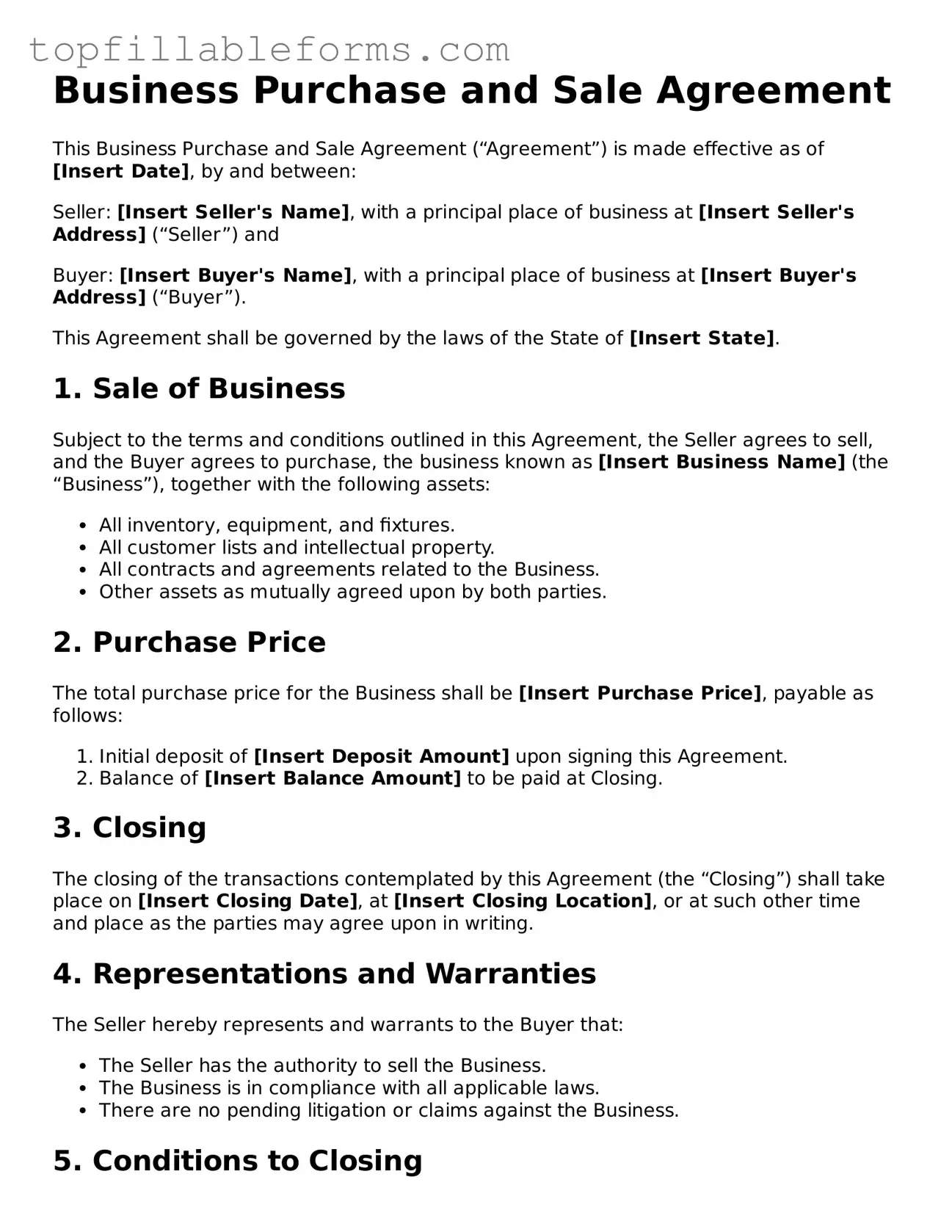Free Business Purchase and Sale Agreement Form
The Business Purchase and Sale Agreement is a legal document that outlines the terms and conditions under which a business is bought or sold. This agreement serves to protect both the buyer and the seller by clearly defining the rights and responsibilities of each party involved in the transaction. Understanding this form is essential for anyone looking to engage in a business transfer, as it helps ensure a smooth and transparent process.
Open Business Purchase and Sale Agreement Editor Here

Free Business Purchase and Sale Agreement Form
Open Business Purchase and Sale Agreement Editor Here
Finish the form now and be done
Finish your Business Purchase and Sale Agreement online by editing, saving, and downloading fast.
Open Business Purchase and Sale Agreement Editor Here
or
▼ PDF File
